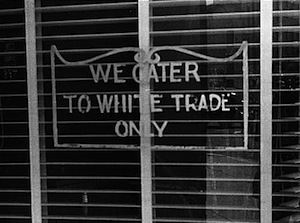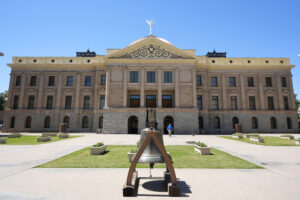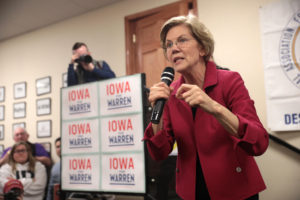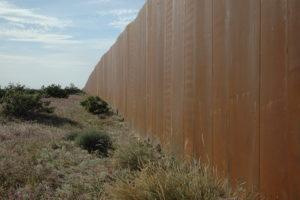Two States Start ‘Separate but Equal’ Voting Systems
In the wake of the Supreme Court’s gutting of the Voting Rights Act of 1965, and a separate ruling tossing out Arizona’s “proof of citizenship” law, Arizona and Kansas have adopted separate voter registration systems for federal and state/local elections, the latter requiring proof of citizenship. Look at it as Jim Crow 2.0.
Republican-led states Arizona and Kansas have adopted two-tier voter registration systems to evade a federal ban on requiring proof of citizenship to vote, a move decried by open-voting advocates and sparking fears of a broadeneing wave of voter suppression in immigrant-heavy areas of the country.
Beyond the impact on voter enrollment, opponents point to the excessive costs of the two-track systems — essentially, making election bureaucrats do everything twice — as reason enough for the ostensibly cost-watching conservatives to abandon the plans. But the maneuvers fit directly in with long-running GOP efforts to reduce voter turnout among minorities, who tend to support Democratic candidates. The New York Times reports:
The battle over voting is part of a larger struggle between the two parties. Democrats have sought to make voting easier and to increase participation among minority groups that tend to support them. Republicans have sought to require more proof of citizenship and to increase identification requirements, saying they are fighting potential fraud.
The two-tiered system — deemed costly, cumbersome and prone to confusion by many of its opponents, as well as election officials in both states — threatens to derail an effort by Democrats and their allies to increase voter registration and turnout among Latinos and the poor, part of a push by the party to pick up local offices and seats in the states’ legislatures, where policies have been largely dictated by Republicans in recent years. The states would create separate ballots covering only federal races for voters who do not provide proof of citizenship.
“It’s another veiled attempt at discouraging young voters, low-income voters, Latino voters from entering the electoral process,” said Petra Falcón, executive director of Promise Arizona in Action, one of the groups leading voter-registration efforts here.
In Kansas, officials have already suspended the voting registrations of 18,000 people because they did not provide proof of citizenship. Atlantic Cities doesn’t think too much of the strategy, either:
And by creating greater barriers to registration specifically in non-federal elections, the idea threatens to particularly impact elections for offices like mayor, city council, and state representative.
We already know that turnout in local elections tends to be dramatically lower than in national ones, with direct implications for who gets elected. If anything, we should be trying to find ways to boost local election turnout, not curtail it even further. History has also shown that the political representation of minorities in offices like city council has expanded over time right alongside protections for their voting rights.
Justice Ruth Bader Ginsburg warned about this back in the summer, as the right-leaning Supreme Court was watering down voters rights. “Early attempts to cope with this vile infection resembled battling the Hydra,” she wrote in her dissent to the Voting Rights Act decision. “Whenever one form of voting discrimination was identified and prohibited, others sprang up in its place.”
Coincidentally, next year marks the 50th anniversary of the Freedom Summer efforts to register African-Americans across the Deep South. Let’s hope that as Jim Crow repeats itself, so does the resistance to it.
—Posted by Scott Martelle.
Your support matters…Independent journalism is under threat and overshadowed by heavily funded mainstream media.
You can help level the playing field. Become a member.
Your tax-deductible contribution keeps us digging beneath the headlines to give you thought-provoking, investigative reporting and analysis that unearths what's really happening- without compromise.
Give today to support our courageous, independent journalists.






You need to be a supporter to comment.
There are currently no responses to this article.
Be the first to respond.